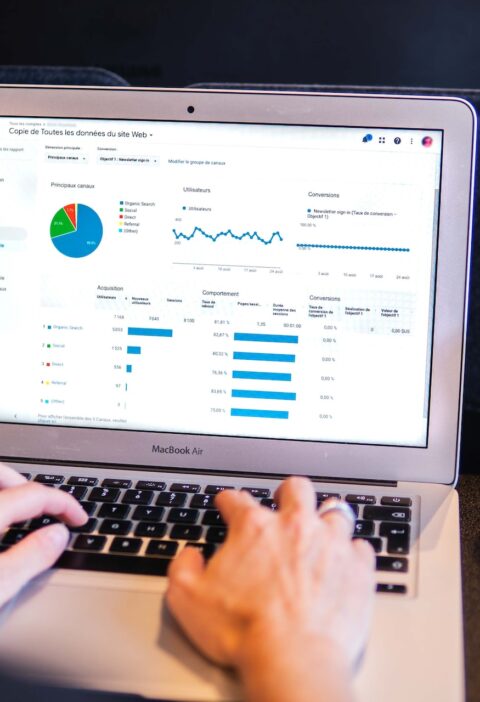Are you in need of equipment, land, or property for your business? Are you in no position to buy it outright? The solution might be in leasing options.
Operating and capital leases are great options with less money upfront and less risk. Understanding the differences between the two will ensure your business thrives.
In this article, we will cover everything you need to know about the operating lease as a finance tool.
Whenever you’re ready to delve into the intricate topic of essential business practice, keep on reading.
Operating Lease: The Basics
What is an operating lease? This type of rental agreement allows you to get the use out of a property (like office space, land, or equipment) for a specific amount of time.
It’s similar in some ways to car leases and other asset acquisition agreements. This is because it involves paying upfront, without owning any rights at the end.
Furthermore, operating leases are different from finance leases. They differ in that you’ll pay monthly payments to your lessor instead of paying for the property at the end. This is only until the term expires, and then you’re free to continue leasing or return it.
When Should I Get an Operating Lease?
If your business is overgrowing, there may be instances where you’re getting the use out of high-value items. For instance, cars, trucks, and other equipment
In such cases, you may consider an operating lease that doesn’t tie your hands into participating in a finance agreement. For example, buying or leasing something long-term.
For example:
If I’m growing my business rapidly and need to get more office space than what we currently have available for our employees, it’s probably best to go with an operating lease on some new offices instead of committing myself financially via another type of agreement.
Although this means paying monthly costs over time instead of shelling out money once at the beginning of an arrangement. It also involves less strict terms regarding how much can be done, so there’s a potential upside.
Let’s say we’re growing and need to get more office space than what we currently have available for our employees. This means committing ourselves financially via another type of agreement.
However, an operating lease allows us to pay monthly costs over time instead of shelling out money once at the beginning of an arrangement. It also involves less strict terms regarding what can be done where/when/etc. There’s a potential upside!
Five Things to Know About Operating Leases
Before you consider getting an operating lease, you should understand all of the intricacies of it. Here are five things you should know about operating leases.
1. Not the Same As Finance Leases
Operating leases are not the same as finance leases. This means that you’re essentially renting the property for a certain amount of time. Whereas finance leases are all about paying upfront without owning any rights at the end.
Operating leases also differ in the fact that you’ll make monthly payments to your lessor. Whereas finance leases are paid at purchase or in whole. Check out the principles of asset finance here.
2. Residual Value
Operating leases have a residual value at the end of their lease term, making it easier to sell or trade in your car, truck, van, SUV, motorhome, or RV. In essence, this allows you to get more out of your lease at the end because it’s easier to find a buyer (or trade-in) on account of its value.
You can retain the more excellent value of your lease by selling it when the deal is highest (like at the end of your lease).
3. Repossession
The lessor can repossess equipment if needed during an operating lease for nonpayment and failure to comply with terms in the contract.
If you’re not prepared to deal with potential repossession, this is something to be aware of. It’s worth noting that your company is the one that loses the property.
Furthermore, if you’re not prepared to pay for the property at the end of your lease agreement, you shouldn’t get an operating lease.
4. Purchase Option
The lessee has no ownership interest in the leased property until after all payments have been made under the operating lease agreement.
At that time, they will receive a bargain purchase option equal to their total investment, including any down payment, without considering buying out this option before then. This purchase price becomes fixed from the start of the lease term.
5. Cancellation
The lessee can cancel an operating lease at any time with no penalty by paying only for all future payments due under the agreement made up to that point in time, plus a reasonable amount towards any damage caused during this timeframe. This means that you can end an operating lease whenever you want, without penalty.
Furthermore, you can avoid a cancellation fee by paying for future payments owed only and a reasonable amount towards any damage caused during this timeframe.
In conclusion, operating leases are great to have if they work in your favor. Just make sure that you understand the ins and outs before committing yourself!
How to Avoid Non-Beneficial Operating Leases
Operating leases are great to have if they work in your favor, but if you’re not careful about them, non-beneficial operating leases can leave a bad taste in your mouth.
Here’s how to avoid these types of arrangements so that you don’t get stuck with one:
Don’t Buy Equipment
You should never buy equipment unless necessary, because the cost of ownership will outweigh any savings made by getting an operating lease.
The right choice for most businesses would be financing at least part of what they need instead, because this helps reduce risk while increasing flexibility when approached correctly.
This may involve using multiple finance agreements or borrowing from more than one source. Just make sure that you know all options available before making commitments!
Thorough Understanding
Ensure that you have a thorough understanding of operating leases so that you don’t get caught out.
Make sure, too, that your business is adequately protected throughout the term and at all times during this type of agreement, because it’s easy to be left vulnerable without safeguards in place!
Expiration Dates
Be aware of any expiration dates on your operating lease, as well as pre-payment options if they’re available. This will help ensure that you can take advantage of better deals should they arise, while protecting yourself against unfavorable outcomes if prices rise unexpectedly!
It may even make sense to pay for more than one year upfront (if allowed) to lower monthly rates, which also helps reduce risk by spreading costs over time. Your lessor might allow higher mileage allowances under certain conditions, which can also help reduce costs.
Operating Lease Secured
In conclusion, operating leases are great to have if they work in your favor. Just make sure that you understand the ins and outs before committing yourself!
Please take advantage of all available options for financing equipment or other types of purchases, because this can help reduce risk while increasing flexibility.
Check out some of our other articles on financial topics on the main page. We have a little bit of everything for everybody.







